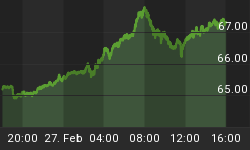In the beginning, we had fake news. Now we have fake reviews.
No one can deny that reviews can be critical for e-commerce companies and businesses that operate in online marketplaces such as Amazon--not only because a higher rating can mean better conversion rates but also because more reviews frequently mean a higher ranking in Google search results.
Given what’s at stake, the temptation to game the system by writing, buying or soliciting fake reviews can be high.
But businesses that rely on such underhand tactics now better be careful.
The Federal Trade Commission (FTC) has just filed and won a case against fraudulent Amazon reviews, the first time ever that the consumer protection watchdog has successfully indicted a business for the practice.
On February 19, the FTC filed a complaint against Cure Encapsulations, Inc. for paying a third-party website to write misleading 5-star Amazon reviews for its weight-loss supplement, Garcinia cambogia. Less than a week later, the courts ruled in favor of the FTC and imposed a $12.8-million fine on the defendant.
Heavy penalties
Cure Encapsulations was found guilty of having paid amazonverifiedreviews.com an unspecified amount of money to keep the product’s rating above 4.3 out of 5 stars by stating that the supplement was a powerful appetite suppressant and blocked fat from forming. The FTC found these claims to be false and unsubstantiated—and for good reason. Garcinia cambogia, a tropical fruit also known as the Malabar tamarind, is in fact suspected to cause acute liver failure as per the National Center for Biotechnology Information (NCBI).
Related: Billion Dollar Bust Proves The World Still Has A Drug Problem
As part of the settlement, Cure Encapsulation has agreed to desist from ever making claims such as “fat blocking, appetite suppressing, weight loss or disease-treatment” for any of its dietary supplements, drugs or food before reliable scientific evidence based on human clinical testing is available to support the claims. Cure Encapsulation is now required to inform Amazon that it paid for reviews, which in itself is a violation of the online retailer’s rules around promotional content. Further, the company must notify all customers who have purchased the product.
To keep the company in line, the FTC imposed a fine of $12.8 million though only $50,000 was due immediately with the rest used to enforce the judgment.
Clamping down on fake reviews
Fake Amazon reviews have been a big problem on the giant e-commerce site for many years though regulators like the FTC have shown little interest in cracking down on the practice.
In the past, Amazon has claimed that less than 1 percent of reviews on the platform are fake. But with more than half a billion reviews on the site, a lowball estimate of fake reviews exceeds 5 million, by no means a trivial number. Amazon has been going hard at review sellers themselves including suing sellers on freelance job sites such as Fiverr. The company has vowed zero tolerance on the practice conceding that one fake review is one too many.
With the FTC now beginning to stamp its authority on the online space, it’s setting a firm precedent that companies that abuse online platforms have got nowhere to hide. As the FTC director of consumer protection, Andrew Smith, has duly noted, companies that buy fake reviews to inflate their online ratings hurt both shoppers as well as companies that play by the rules. One of the agency’s key mandates is the prevention of anti-competitive business practices. In recent months, the organization has demonstrated a growing willingness to rein in on abusive practices in the tech industry that go far beyond the low-level scams such as fake reviews.
Still, it’s going to be interesting to see whether the agency has the will or resources to go after the biggest bad actors that lurk on the giant online platform.
By Alex Kimani for Safehaven.com
















